In the history of our nation's struggle to build and defend the country, national hero Le Hoan not only made great contributions to the fight against the Song, pacify the Champa, preserve and consolidate national independence, but also had many merits in the diplomatic career, building and developing the country of Dai Co Viet.
 Le Hoan Temple in Trung Lap village, Xuan Lap commune (Tho Xuan). Photo: Nguyen Dat
Le Hoan Temple in Trung Lap village, Xuan Lap commune (Tho Xuan). Photo: Nguyen Dat
According to historical records: Le Hoan (941-1005) was from Xuan Lap, Ai Chau (now Xuan Lap commune, Tho Xuan district). Le Hoan's childhood was difficult and miserable. He was born without knowing his father, and became an orphan at the age of five or six, but he was fortunate to be taken in and adopted by a mandarin named Le. At the age of 16, Le Hoan and his friends joined the army of the hero Dinh Bo Linh, participating in suppressing the rebellion of 12 warlords. With his talent, intelligence, and resourcefulness, he was trusted by Dinh Bo Linh and assigned to command 2,000 soldiers. In 971, when he turned 30, Le Hoan was promoted by Dinh Bo Linh to the position of General of the Ten Ways, commander-in-chief of the army throughout the country. This was also a recognition of his merits and contributions.
During his 9 years as the General of the Ten Directions, Le Hoan devoted himself to building a powerful army, wholeheartedly supporting the Dinh Dynasty. At that time, the country was peaceful, partly due to the heart and talent of the general who raised the army. However, the work of building a unified nation and stabilizing the government did not last long when at the end of 979, a major incident occurred. Do Thich, because of his illusion of becoming king, murdered King Dinh Tien Hoang and his eldest son Dinh Lien. After that, the court put his second son Dinh Toan on the throne and Le Hoan was appointed vice-regent. Some officials feared that Le Hoan would overwhelm Dinh Toan, so they tried to oppose him, they left Hoa Lu intending to cause a riot. However, with his intelligence, Le Hoan quickly quelled the internal rebellion.
The internal chaos had just been quelled, when external hostilities immediately broke out. Hearing that Dinh Tien Hoang had died and that Dinh Toan had succeeded him at a young age, the courtiers were at odds and fighting and killing each other, and the Song Dynasty took advantage of the opportunity to send troops to invade our country. At a time when the survival of the nation was in dire straits, the responsibility of steering the Dai Co Viet nation ship was entrusted to Le Hoan by Queen Mother Duong Van Nga and the generals. In 980, Emperor Le Dai Hanh ascended the throne, opening the Tien Le Dynasty and his first task was to stabilize the political situation and urgently organize a resistance war against the invading Song army. On the Song side, they launched a war of aggression against our country in June of the year Canh Thin (980), mobilizing 30,000 troops with many experienced generals. By February of the year Tan Ty (981), the Song army flooded into our country. In March of 981, Hau Nhan Bao and Ton Toan Hung brought troops into Lang Son ; Tran Kham To led his army to Tay Ket; Luu Trung led his navy to enter Bach Dang river mouth.
On our side, the king led his army to block the enemy. On the waterway, the king ordered his troops to plant stakes on the Bach Dang River to block enemy warships. The enemy's navy was defeated on the Bach Dang River after many fierce battles. On land, because they could not combine with the navy and were fiercely blocked by our army, the Song army was forced to retreat. Taking advantage of the victory, our army continued to pursue and destroy many enemy forces. The army led by Tran Kham To advanced to Tay Ket, hearing that the two navy and army forces of Hau Nhan Bao and Luu Trung were defeated, they panicked and led their troops back. The king led his troops to block, Tran Kham To's army was heavily defeated, more than half were killed, the enemy's corpses were scattered all over the fields, we captured two enemy generals, Quach Quan Bien and Trieu Phung Huan, and brought them back to the capital Hoa Lu. In just a short time, with his military talent combined with skillful diplomacy, King Le Dai Hanh commanded his soldiers to defeat three invading armies of the Song Dynasty, breaking their ambition to invade our country.
After defeating the Song army, Le Dai Hanh immediately thought of punishing Champa, a country that had always been aggressive towards Dai Co Viet in the South. In 982, our navy led by Le Hoan crossed the sea to the South and attacked the Champa capital, Indrapura. This was the first Southern expedition in the history of our nation's founding. From then on, the Champa king had to pay tribute and declare himself a vassal every year, further consolidating the independence of Dai Co Viet. Le Hoan's career of defeating the Song and pacifying Champa was a glorious career in the history of the nation.
Ngo Si Lien in Dai Viet Su Ky Toan Thu wrote: "The king won every battle, beheaded the king of Champa to wash away the humiliation of the invaders capturing the envoy, defeated the army of Trieu Tong to break the plot of the king and his subjects to win, he can be called the greatest hero of his life."
With those glorious victories, Emperor Le Dai Hanh demonstrated an outstanding military talent, great martial arts and was a general who won every battle and every victory in the history of our nation's struggle to build and defend the country. But his genius was not only in the military field, but under the reign of Emperor Le Dai Hanh, Dai Co Viet at that time also achieved many achievements in economics, diplomacy, military, culture...
In the cultural field, King Le Dai Hanh paid special attention to the "cultural ideology" life, protecting and promoting the ancient cultural heritage of the nation. Talented dancers and singers of that time such as Duong Thi Nhu Ngoc and Pham Thi Tram were given the title of "U Ba" by the king and ordered to teach soldiers to dance and sing, both promoting and preserving the ancient cultural heritage of their ancestors and encouraging the spirit of soldiers to attach themselves to military life.
In addition, he paid great attention to the development of agriculture, handicrafts, small-scale industries and fine arts. The blacksmithing, pottery and silk weaving industries were also developed evenly in the provinces, promptly serving the people's lives and national defense (according to An Nam Chi Luoc, in 985, Emperor Le Dai Hanh used one ton of white silk for diplomatic ceremonies with the Song Dynasty. This shows that the silk industry was very popular at that time).
At the same time, he was also the first person recorded in history books to have the policy of digging rivers and building roads. In Thanh Hoa, the Le River, the section flowing through Nghi Son town, bordering Nghe An province, was the first canal, formed under the reign of King Le Dai Hanh to connect waterway traffic from the capital Hoa Lu to Ngang Pass - the border between Dai Co Viet and Champa. During the feudal period, the Le Canal played an important role in transporting military provisions, expanding the territory to the South and developing agriculture. Over time, the Le Canal is still a valuable waterway system.
Also because of the skillful and comprehensive leadership of Dai Co Viet country in all aspects, when commenting on the position of Dai Co Viet country as well as the economic, cultural and social development of the country of King Le Dai Hanh, historians, scholars Ngo Thi Si and Phan Huy Chu all unanimously assessed: "The Chinese envoys had to be respected, the mountain chieftains stopped rebelling. Hoa Lu citadel was more prosperous than the Dinh dynasty. He also paid attention to the people's strength, cared about the country's politics, focused on farming, strictly guarded the border, and regulated the law. The selection of soldiers,... can be said to be extremely diligent and devoted".
With his outstanding talent and strategy, Emperor Le Dai Hanh was not only a typical hero of the Vietnamese people in defeating the Song and pacifying the Champa, but also successfully completed the pivotal mission of the 10th century, opening a new, more glorious and brilliant era for the nation. His talents and virtues will be recorded in history books, forever a shining example for future generations to be more proud and to enhance their sense of responsibility in joining hands and efforts to build the homeland to become more and more prosperous.
Nguyen Dat
The article uses materials from the books "Background of Thang Long capital and Le Hoan's career" (Hanoi Publishing House), "King Le Dai Hanh and his homeland Trung Lap village" (Thanh Hoa Publishing House - 2013).
Source






![[Photo] Prime Minister Pham Minh Chinh chairs conference to promote public investment growth momentum](https://vphoto.vietnam.vn/thumb/1200x675/vietnam/resource/IMAGE/2025/5/20/7d1fac1aef9d4002a09ee8fa7e0fc5c5)



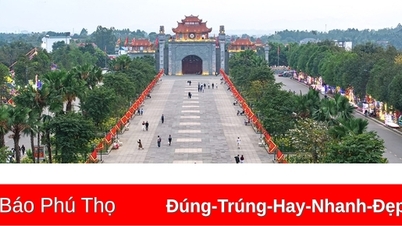
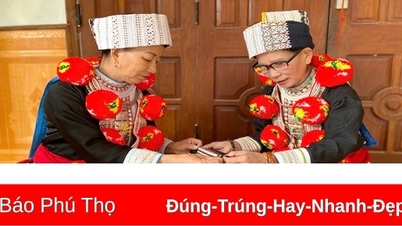
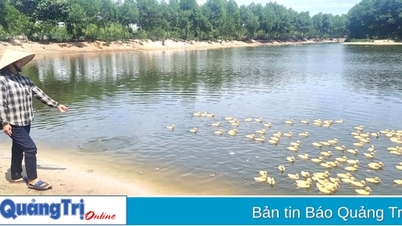


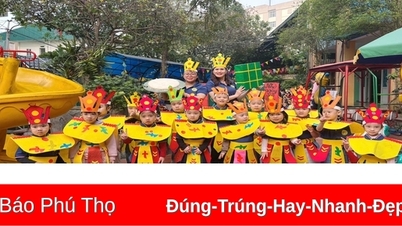

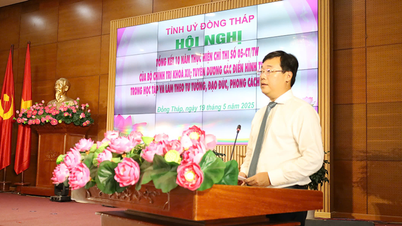
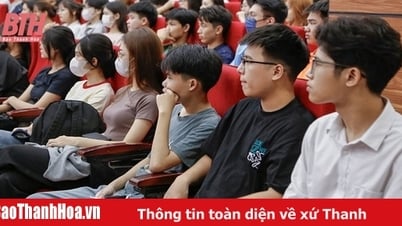


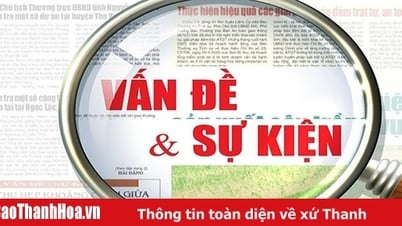








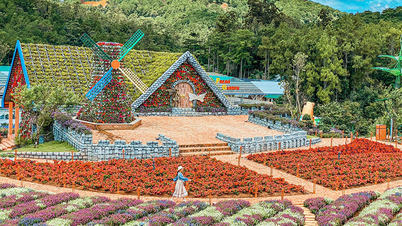
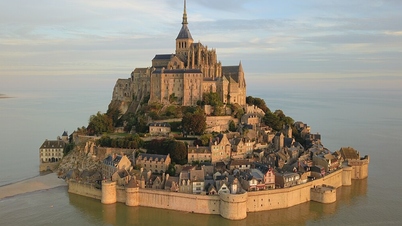































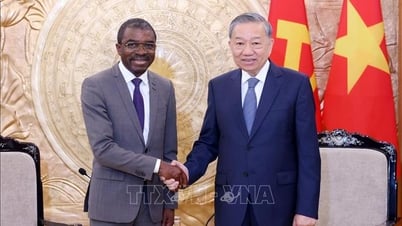

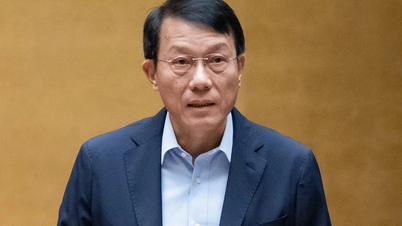


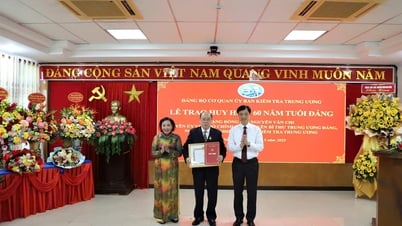

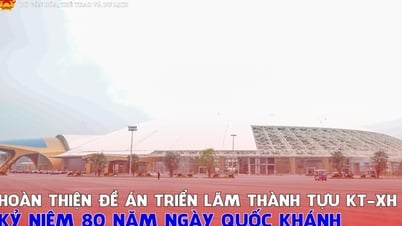

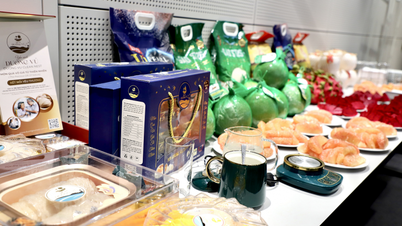



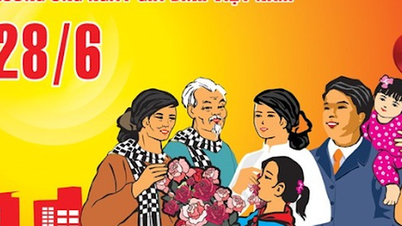
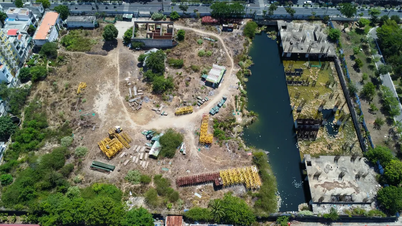

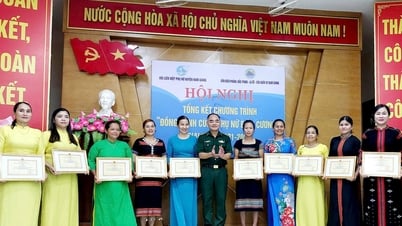
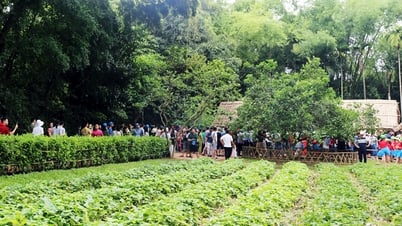

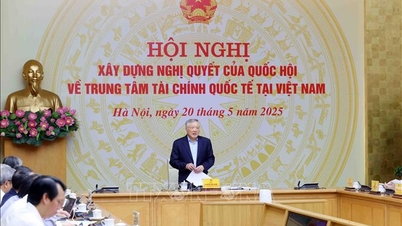

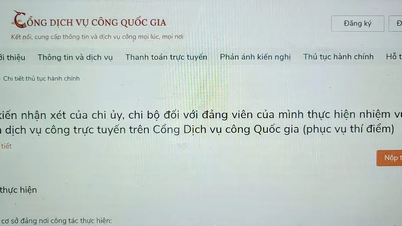
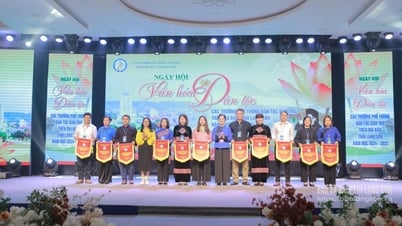












Comment (0)